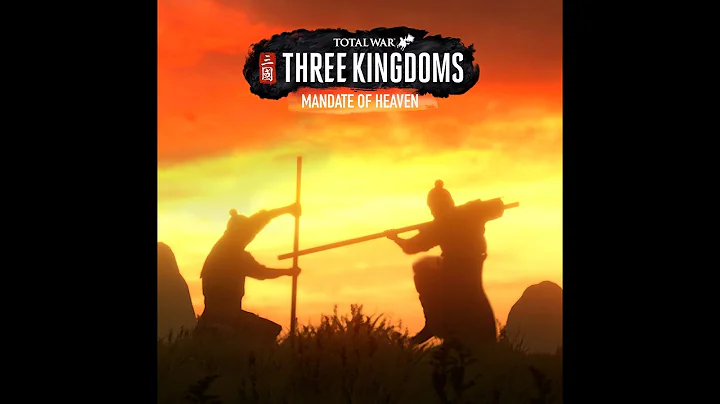Thanks to "The Romance of the Three Kingdoms", everyone must be very familiar with the Three Kingdoms era, where heroes gathered and famous generals gathered in the clouds. Then you must have heard this jingle: " Cao Wei is a good wife, Soochow controls lolita, Shu Han are all based on it."
The words are rough but not rough, and this jingle is not groundless. Take Lord Wei Cao Cao as an example. This hero is good at everything, but he has one quirk - he likes to steal wives. Every time he conquered a place, he asked his generals to take over the city and supplies, while he excitedly went to take over other people's wives and concubines.

According to historical records, Cao Cao had fifteen wives and concubines in his life, ten of them were married women! For example, General He Jin's daughter-in-law Mrs. Yin , Lu Bu 's general Qin Yilu 's wife Du Shi, and Northland Spear King Zhang Xiu 's aunt, the Han Hussars general Zhang Ji 's widow Zou Shi.
Even the family members of his old rival Yuan Shao , Cao Cao did not intend to let go. If his son Cao Pi had not inherited the bloodline of "wife collector" and took Yuan Shao's daughter-in-law Zhen Mi away first, I'm afraid there will be another collector in Cao Cao's harem.

From this point of view, throughout the Three Kingdoms period, what the famous generals were most afraid of hearing was not the red-faced Guan Erye 's "You are the first to insert the bid and sell the first one", nor was it the shirtless Xu Chu's "Who will fight with me?" "Three hundred rounds", but Cao Mengde's tender saying: "I will take care of your wife myself, don't worry about it!"
You can go with peace of mind, I will take care of your wife and children - if Lao Cao said this to you, so I asked you if you are afraid?

However, Cao Cao's ambitious wife collection plan was stopped by the Battle of Chibi - the war that determined the general trend of the world during the Three Kingdoms era.
Before the Battle of Chibi, Cao Cao established his rule over the north on the Yellow River . The ambitious Mengde carried out large-scale construction of Tongque Terrace , intending to launch an unprecedented scale cross-river battle and pacify it in one fell swoop. After the two kingdoms of Wu and Shu, the two most famous beauties of Soochow, Sun Ce 's wife Da Qiao and Zhou Yu 's wife Xiao Qiao , were kidnapped back here to enjoy the blessings of the whole family.

However, a fire in Chibi caused Cao Cao to lose Da Qiao and Xiao Qiao, and half of the country in the south, which became an eternal pain in his heart.
The thirteenth year of Jian'an, that is, 208 AD, was the middle point of the Jian'an era and the turning point of the Three Kingdoms at the end of the Han Dynasty.
Before this year, Chinese history was mainly characterized by the confrontation between the east and the west. After this year, it became a contest between the north and the south. Before this year, China had four hundred years of peace. After this year, it will be four hundred years of peace. The world was in turmoil; before this year, Cao Cao's unification was in sight, but after this year, Cao, Liu, and Sun were separated, and the situation of the Three Kingdoms was clearly formed.

However, why has the historical trend been so shockingly reversed? What happened in the thirteenth year of Jian'an?
Feng Yun, a young historian who was born in the hometown of Confucius and Mencius, studied at Tsinghua University and Peking University, traveled in temples and rivers and lakes, and was obsessed with classics and history. In the book "Thirteen Years of Jian'an", he subverts the traditional historical narrative method and uses a unique The innovative perspective and the language that is both solemn and humorous present the details of the true history of the late Han Dynasty and reveal to us the deep origin of the "three parts of the world".

Fengyun takes the twelve locations of Yecheng, Jiangxia, Xiangyang, Xudu, Guanzhong, Changban, Chaisang, Chibi, Jiangling, Hefei, Jianye, and Yizhou as time and space nodes. Looking down In this turning year in the Three Kingdoms era, look at what Cao Cao, Liu Bei , Sun Quan , Ma Teng , Liu Biao , Liu Zhang and other forces thought and did in this turning year. , re-examine the magnificent flow of history and its endless twists and turns.
In the spring of the thirteenth year of Jian'an, the great Han Sikong Cao Cao, who had returned from the northern expedition against Yuan Shao, did two inconspicuous things. One was to dig an artificial lake called Xuanwu Pond in the west of Ye City, and then practice naval forces here; the other was to On the pretext of "recommending Cao Pi in violation of regulations", he dismissed the senior Situ and Zhao Wen from his post.

Compared with other things that happened this year, these two things are really insignificant and not worth mentioning, but Feng Yun tells us that those behind the historical facts that are easy to be ignored by people are often the key points of history.
Although these two things Cao Cao did did not make much noise, as long as we think deeply, it is not difficult to find that behind these two small things, Cao Cao's big intention is actually hidden.
As Feng Yun wrote in the book, digging ponds and training naval forces was obviously to use force against the south and to find excuses to avoid Zhao Wen. It was also to abolish the three-gong official system, re-establish the prime minister and the imperial censor, and appoint Cao Cao himself became prime minister to pave the way.

These two small things, one heralded a new military trend, and the other revealed a new political climate, were the two seeds sown by Cao Cao in the spring of the thirteenth year of Jian'an. However, Cao Cao had no way of knowing at this time whether these two seeds could bear fruit.
In "Thirteen Years of Jian'an", Fengyun also sorted out the strategic plans of different military groups such as Cao Wei, Shu Han, and Soochow.

For example, for the Sun family that occupies the east of the Yangtze River, Jiangxia is not only the home of Huang Zu, the father-killing enemy, but also the east gate of Jingzhou. To achieve the goal of "Jing and Yang can be one", Huang must be eliminated first. Because of this, from the fourth year of Jian'an to the thirteenth year of Jian'an, Sun Ce's Sun Quan and Soochow launched a total of four attacks against Jiangxia, putting on a posture of "Loulan will never be returned until it is broken".
For another example, for the ambitious Cao Cao, war after war is the only way to expand his territory and increase his strength. Therefore, from the first year of Chuping to the thirteenth year of Jian'an, he fought against Dong Zhuo , attacked Heishan, and Defeated the Huns, defeated Yuan Shu, invaded Tao Qian, defeated Zhang Xiu, attacked Liu Biao, captured Lu Bu, conquered Liu Bei, conquered Yuan Shao, killed Yuan Tan, destroyed high officials, and attacked Wu Heng. For a long time, Cao Cao Either when they are fighting or on their way to fight, "conquer once every six months" has almost become an iron rule for Cao Wei's army.
There is also Liu Bei who has just ushered in the darkest moment of his life: Cao Cao went south, Liu Biao died of illness, Liu Cong surrendered, all these are added together, and Liu Bei, who is between Cao Cao and Liu Cong, becomes Roujiamo. Where to go is not only about development, but also about survival. In the end, Liu Bei followed Zhuge Liang's suggestion and "sent Guan Yu on hundreds of ships to Jiangling" and gained the last glimmer of hope.

Just like this, from Yecheng to Xudu, from Guandong to Guanzhong, from the Central Plains to Jingzhou, from Jiangdong to Yizhou, with the germination of seeds, a great drama that changes the world pattern and the direction of history is rapidly unfolding. Spread out.
In short, in the year 208 AD, there were thirteen months of ups and downs, and twelve locations connected from the north to the south. There were people, things, affairs, family, country, and world at all times and everywhere. Two seeds that determine the fate of the Han Empire have been planted. In the changes of time and space, a drama that will change the world and the direction of history has officially begun! As Feng Yun, the author of this book, said in the book:
Eight hundred years of division and reunification of the world's power can only be attributed to this one year; two thousand years of heroism can only be measured in a few thoughts. In the mighty five thousand years of Chinese history, History of the Three Kingdoms , which is less than a hundred years old, is indeed not that important. However, if people really forget the Three Kingdoms, it is not that easy - why?
Because, no matter the times of governance, chaos, or peace, the power of the world is always there; no matter the elite, the grassroots, or the middle class, heroism is indispensable. Situation, judge it; Qi, the wind blows it!
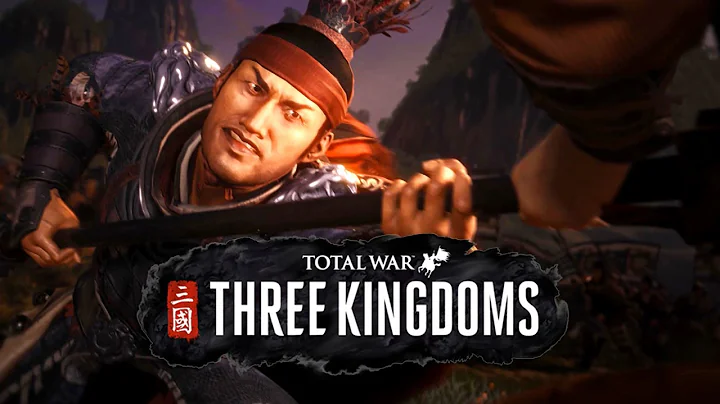



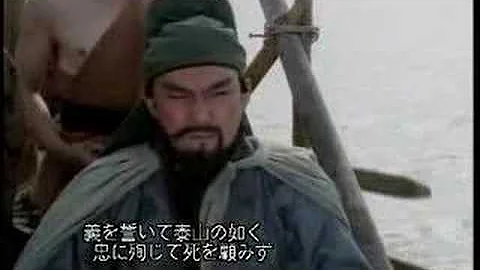
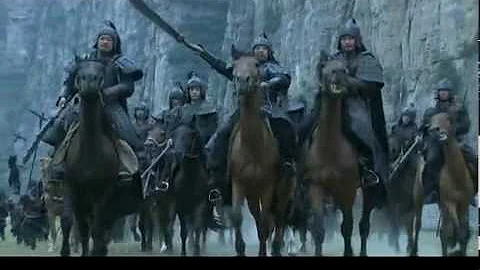

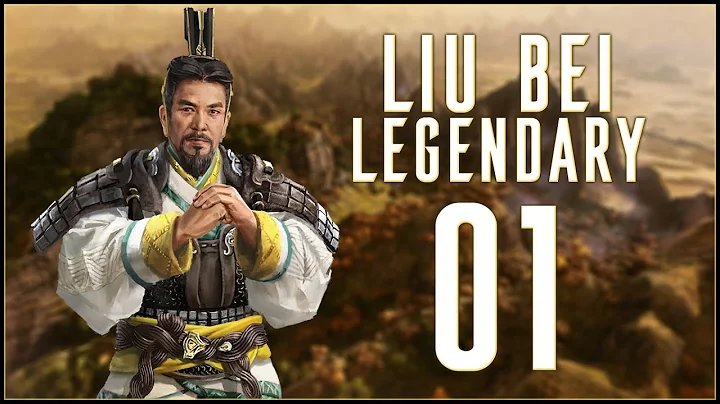

![[Sub Chinese,Eng,Pinyin,Thai] Dong Zhuo Trailer Music (Total War: Three Kingdoms) - DayDayNews](https://i.ytimg.com/vi/vPewO13zglE/hq720.jpg?sqp=-oaymwEcCNAFEJQDSFXyq4qpAw4IARUAAIhCGAFwAcABBg==&rs=AOn4CLCEDZ2peXobSVYwIQGiO4Jo_YbuVw)
